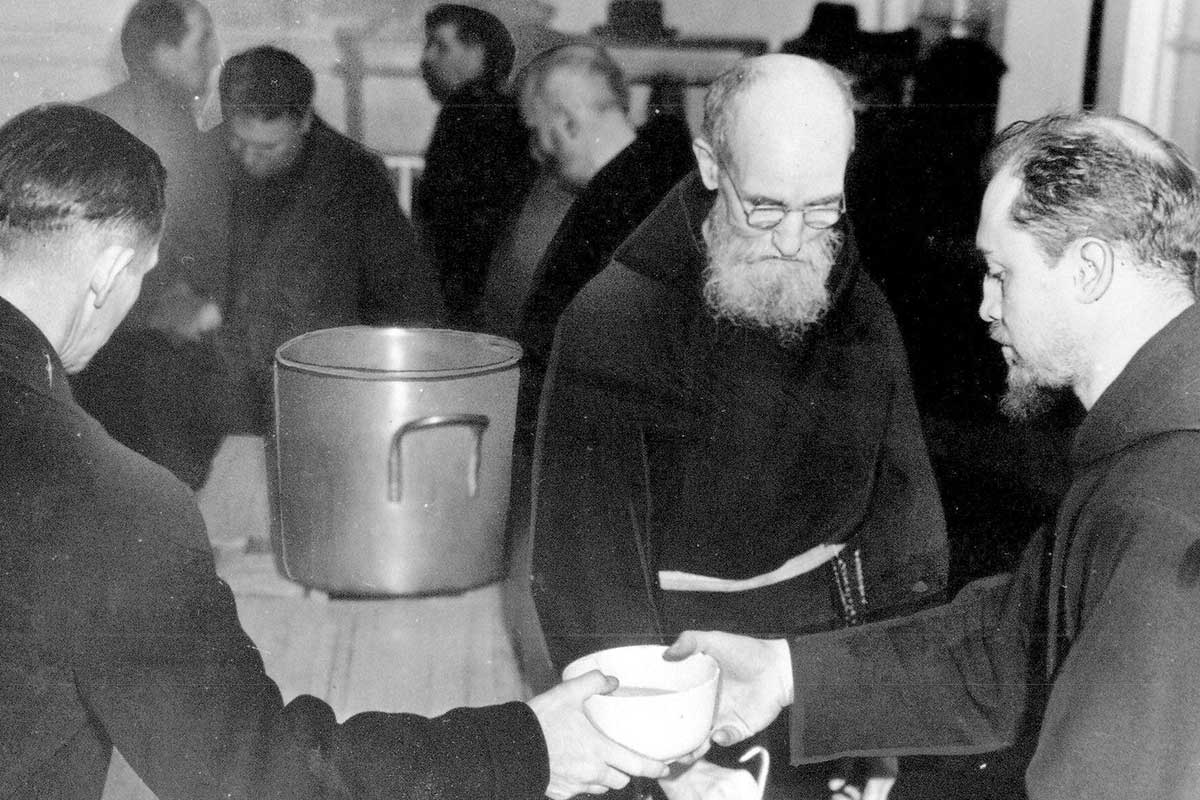
“I have two loves: the sick and the poor,” said Fr. Solanus Casey. Thank God: That includes all of us! Don’t we all suffer both sickness and poverty in body, mind, or spirit at one time or another? Fr. Solanus no doubt included himself:
“Pray for poor Fr. Solanus–who like all poor sinners needs the grace of God to be fully converted.” True or real conversion, he said, couldn’t happen this side of heaven. Even during his final illness, he said, “I’m offering my sufferings that all might be one. If only I could see the conversion of the whole world.” It is Fr. Solanus’ humility, the modesty of his own importance, that sets him apart. Fr. Solanus saw in himself the limitations and weaknesses of being human.
Having not been assigned the job of doorkeeper in Manhattan, Fr. Solanus had time to consider conversion, that is, conversion from the control of his shortcomings: Sensitivity to criticism; an ego that liked to be stroked; the ability to rationalize his negative tendencies; subtle forms of pride; and insensitivity to the needs of the poor. So, how did he eventually come to count the poor among his two greatest loves?
“Inevitably, when you can’t see something in yourself, you project the quality onto someone else, either judging or admiring the quality in them.” –Sally Kempton
It was during this period of deepening that Fr. Solanus further purified his motives and dreams. His personality turned away from practical goals to visionary goals. His increasing generosity toward people was marked by enthusiasm and “zeal for souls.” His union with God was achieved through “ecstatic prayer” and the desire to encourage others to seek his union.
At St. Bonaventure in Detroit, Blessed Solanus would answer the door and help those who were suffering in poverty by offering food from the monastery kitchen. On October 29, 1929, the Great Crash sparked mass layoffs in the auto industry and marked the beginning of the Great Depression that wouldn’t end until the Second World War. Blessed Solanus’ ministry at the door of St. Bonaventure inspired the other Capuchin friars, the Third Order Franciscans and other lay people to work together to build a permanent, formal institution to attend to the spiritual and basic human needs of the poor, especially the need for food. Thus, the Capuchin Soup Kitchen was born on November 2, 1929 and continues its ministry today.
This move from his “shadow self” toward his “true self” opened his spirit to be even more receptive to God. Holding hands with Sister Death during an infection of gangrene further sealed Fr. Solanus’ courage to face the truth about himself. He wrote:
“I had been in agony for at least 40 hours, though no one else seemed to know it, and while I tried to thank God for it all, my principal prayer – at least 1,000 times repeated – was ‘God help us.’” Sister Death loosened her grip and Solanus left the hospital within a short time.
As much as one would like to imagine that Fr. Solanus might have been perfect, isn’t it comforting to know that he was human like you and me? His compassion and patience for people seemed to stem from a deep knowing of those anxieties in himself which he abandoned for the sake of others who needed him. And he understood them.